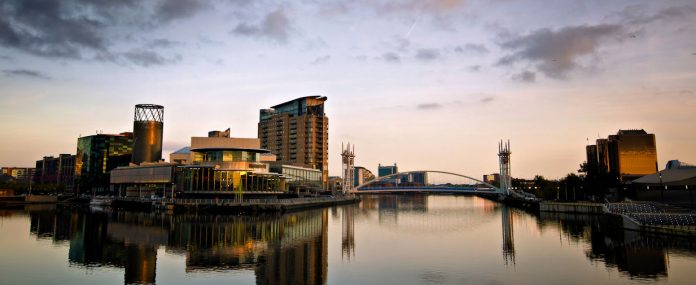Manchester’s taxi industry has undergone substantial changes over recent years, reflecting broader shifts in urban mobility and consumer expectations. With the city’s expanding population and increasing demand for convenient transportation, taxi services have become a vital component of Manchester’s transport ecosystem.
These services provide flexible and affordable options for residents and visitors alike, making them an essential part of daily life in the city. The growth of this sector is not just a response to demand but also a reflection of the industry’s adaptability and willingness to innovate.
As the industry evolves, operators face new challenges and opportunities. Regulatory changes, technological advancements, and shifts in consumer behaviour all play crucial roles in shaping the future of taxi services in Manchester. Companies must navigate these factors carefully to remain competitive and meet the needs of their customers. Understanding the dynamics of this industry is key for any business owner looking to succeed in Manchester’s thriving taxi market.
Understanding the Regulatory Landscape for Taxi Vehicles
The regulatory landscape for taxi vehicles in Manchester is shaped by local and national guidelines that ensure safety, reliability, and quality of services. Operators must comply with a variety of regulations, including licensing requirements, vehicle standards, and driver qualifications. The local council enforces these regulations, which plays a crucial role in maintaining high standards across the industry.
One of the key aspects of regulation is the licensing process, which covers both vehicles and drivers. Taxi vehicles must undergo regular inspections to ensure they meet safety and environmental standards, while drivers must pass background checks and demonstrate their knowledge of local routes. The introduction of new legislation, such as clean air policies, adds another layer of complexity, requiring operators to stay informed about changes that could affect their business. Adapting to these regulations not only ensures compliance but also helps build trust with your customers, who rely on safe and dependable transport services.
The Challenges Facing Taxi Drivers Today
Operating in Manchester’s taxi market presents several challenges, especially in an increasingly competitive environment. One of the primary challenges is maintaining profitability while managing rising costs. Fuel prices, vehicle maintenance, and regulatory fees all contribute to the financial pressures faced by operators. To remain competitive, businesses must find ways to streamline operations and reduce costs without compromising on service quality. This often involves investing in more fuel-efficient vehicles or adopting technology that optimises route planning and reduces idle time.
Another challenge is customer retention in a market where consumers have a growing number of choices. The rise of app-based services and increased competition from established taxi firms means that taxi operators must work harder to differentiate their services. Offering a superior customer experience, such as prompt service, well-maintained vehicles, and courteous drivers, can help build customer loyalty. Additionally, staying attuned to customer feedback and quickly addressing any issues can set your business apart in a crowded marketplace.
The Growing Demand for a Smooth Customer Experience in Taxi Transport
In Manchester’s taxi industry, there’s an increasing demand for a seamless and efficient customer experience. This trend is fuelled by the rising expectations of passengers who prioritize convenience, reliability, and comfort in their transport options. Customers now expect quick and easy booking processes, prompt pick-ups, and smooth journeys, all supported by modern, well-maintained vehicles.
For operators, delivering a superior customer experience is key to staying competitive. Ensuring that their fleets are equipped with advanced features, such as real-time tracking, in-car amenities, and user-friendly payment systems, is essential. Exploring vehicle options for taxi drivers that cater to diverse customer needs, from luxury models to accessible options, can significantly enhance service quality. By prioritizing customer satisfaction and streamlining operations, taxi companies can not only meet but exceed passenger expectations, fostering loyalty and driving business growth.
Why Customer Experience is Crucial for Success
In a fiercely competitive market, providing an exceptional customer experience can set your service apart and foster loyalty among passengers. Customers expect more than just a ride; they look for comfort, safety, and reliability. Ensuring that your vehicles are clean, well-maintained, and driven by courteous, professional drivers can greatly enhance the overall experience, leading to repeat business and positive word-of-mouth referrals.
Listening to customer feedback is equally important. Understanding the needs and preferences of your passengers allows you to tailor your services accordingly. Whether it’s offering multiple payment options, providing timely updates on booking statuses, or ensuring drivers are knowledgeable about the best routes, small details can make a big difference. Regularly reviewing feedback and making necessary adjustments helps in meeting customer expectations consistently, thereby building a strong reputation in the market. A satisfied customer is more likely to choose your service again and recommend it to others, driving the long-term growth of your business.
The Role of a Taxi Driver in Manchester’s Transport Ecosystem
Taxi services are a vital component of Manchester’s transport ecosystem, filling a crucial gap between public transport and private car ownership. These services offer flexibility and convenience, particularly for those who need to travel at short notice or outside the regular operating hours of buses and trains. As Manchester continues to grow and attract new residents, the demand for reliable transport options is on the rise, making taxis an indispensable part of the city’s infrastructure.
Beyond individual convenience, taxi vehicles also contribute to reducing congestion and emissions by providing an alternative to single-occupancy car journeys. For many people, using a taxi vehicle for occasional trips is more economical and environmentally friendly than owning and maintaining a personal car. By integrating seamlessly with other forms of transport, such as trains and trams, taxi services help to create a more cohesive and efficient transport network in Manchester, supporting the city’s overall mobility goals.
Investment Opportunities and Future Growth in Manchester’s Taxi Market
Manchester’s taxi market presents numerous investment opportunities, particularly as the sector continues to expand and evolve. With the increasing adoption of electric and hybrid vehicles, there is potential for growth in areas that cater to this shift, such as charging infrastructure and eco-friendly vehicle options. Investors who recognise the long-term benefits of sustainable transport are likely to find promising opportunities in supporting the transition to greener fleets, which are becoming more popular among both operators and customers.
The market is also ripe for innovation in technology and services. Companies that develop or invest in ride-hailing apps, advanced booking systems, or fleet management tools can capitalise on the growing demand for efficiency and convenience in taxi services. The expected rise in tourism and business travel in Manchester post-pandemic offers further potential for growth, as visitors increasingly rely on taxi vehicles for their transport needs.
Manchester’s taxi industry stands as a dynamic and integral part of the city’s transport framework. Operators who stay attuned to regulatory changes, technological advancements, and shifting consumer preferences position themselves for success. Opportunities abound for those willing to adapt and evolve. Embracing sustainable practices, leveraging technological tools, and understanding the market’s nuances will benefit your business and contribute positively to Manchester’s broader transport ecosystem.







